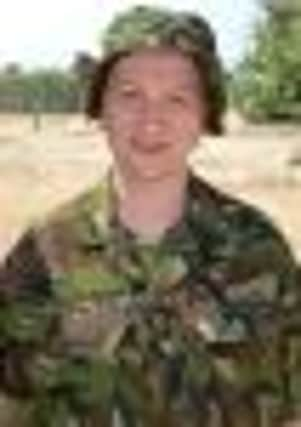Tough test for Ballymena TA Medic


The aim of the operation was to ensure they are not only first rate trauma medics but can also think and act like fighting troops on patrol in Afghanistan.
The soldiers, all volunteer Reservists from 253 (North Irish) Medical Regiment, need to be able to patrol with fighting troops in some of the most treacherous areas of Afghanistan to give instant life-saving first aid should the worst happen on a patrol. This immediate paramedic action saves precious minutes for a wounded soldier before an emergency helicopter response team can scramble and fly them to Camp Bastion hospital.
Advertisement
Hide AdAdvertisement
Hide AdAmong the soldiers is Ballymena Private Bronagh McCormick, a Combat Medical Technician Class 2 who is an Immigration Officer in her civilian life.
“I didn’t realise you could train to be something completely different to your civilian job when I volunteered so initially I went to apply as a clerk. As soon as they told me they could train me to be a medic if I wanted, I said put me down for that and I’ve never looked back’, said Bronagh, who is keen to deploy to Afghanistan in the future if she can.
“I’ve picked up a few injuries, but if I get fit enough I would like to deploy. Being a medic you want to get out there and do what you can for the guys fighting the real fight, but you have to be fit.”
Combat Medical Technicians like Bronagh will be based in Forward Operating Bases (FOB) in Helmand to go out on patrol with Infantry soldiers as their paramedic. It is a lot of responsibility for the soldiers says Bronagh’s Commanding Officer (CO).
Advertisement
Hide AdAdvertisement
Hide Ad“When the worst happens all eyes turn to the medic so they have got to be fit enough to do the patrol and be part of it, including use their weapon if necessary before they can turn around and do their core role to save lives. The similarities to what they will do if they deploy and what we are doing on this exercise is very close. Every serial in the exercise will involve some kind of medical response, be it a basic first aid type casualty or a complex clinical type trauma, on top of their soldiering skills to make sure that they are not just able to get somewhere they are able to be medics at the end of it.
“Being in the TA has given me so much confidence and a real sense of achievement, which you can also take into your civilian and personal life,” concludes Bronagh.